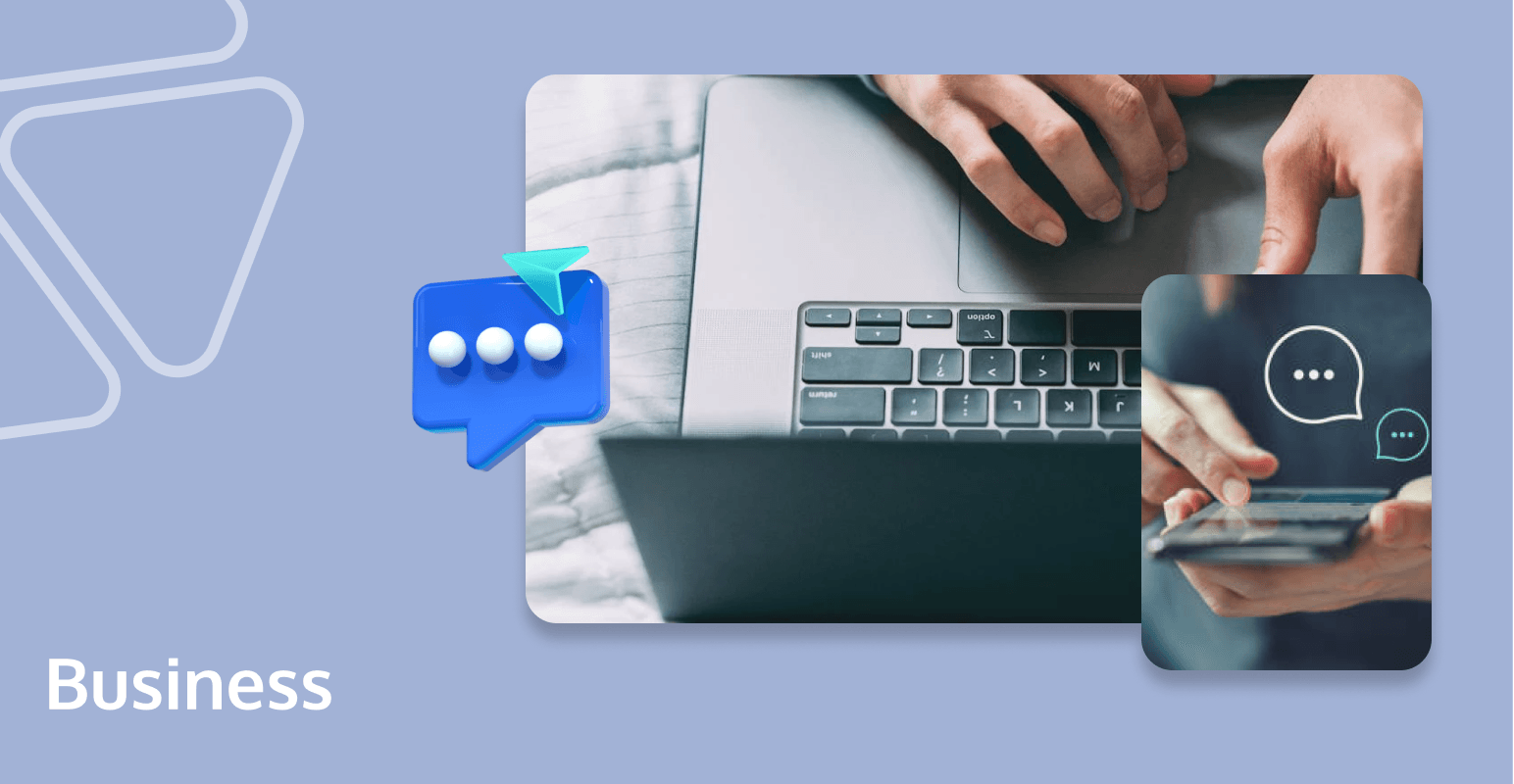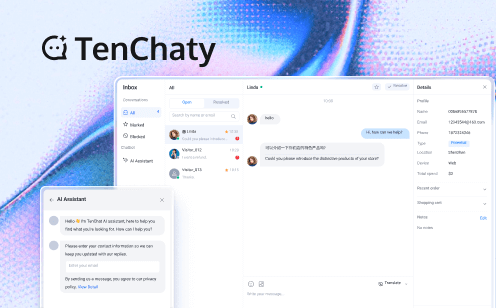
With the increasing demand for real-time communication, businesses and developers are constantly seeking ways to improve and customize their chat experiences. This is where APIs come into play, offering a world of possibilities and endless opportunities for innovation.
Understanding Chat APIs
At its essence, a Chat API, or Chat Application Programming Interface, serves as the conduit for conversations between applications or services. It enables the exchange of messages, facilitating real-time communication between users, whether they are engaging with a chatbot, a live support agent, or each other. These APIs handle the nitty-gritty of sending, receiving, and storing messages, providing developers with the tools to integrate robust chat functionalities into their applications.
Key Features of Chat APIs:
- Real-time Messaging: Enables instant message delivery for responsive conversations.
- User Authentication: Ensures secure identification of users participating in the chat.
- File Transfer: Facilitates the exchange of media files within the conversation.
- Rich Media Support: Allows embedding images, videos, and other multimedia elements.
- Integration with AI: Incorporates artificial intelligence for smart, context-aware responses.
Chat API Use Cases
- Customer Support and Engagement:
- Live Chat Support:
Implementing Chat APIs for live chat support on websites and applications enables real-time assistance to users.
Users can ask questions, seek guidance, and resolve issues seamlessly without the need for lengthy email exchanges or phone calls. - Chatbots for Automated Assistance:
Integrate AI-powered chatbots to handle routine queries, providing instant responses and freeing up human agents for more complex issues.
Enhance customer engagement by offering 24/7 support through automated chat interactions.
- Live Chat Support:
- Social Media and Networking:
- Messaging Apps:
Inclusion of Chat APIs enhances the interactive capabilities of messaging apps, allowing users to send messages, images, videos, and more.
Facilitate one-on-one and group conversations, fostering a dynamic and engaging social environment. - Group Chats and Communities:
Enable users to create and participate in group chats or communities within social platforms.
Foster community engagement, discussions, and collaboration through the integration of robust chat functionalities.
- Messaging Apps:
- Business Collaboration:
- Team Messaging:
Implement Chat APIs for team messaging and collaboration within business applications.
Streamline communication, file sharing, and project updates, enhancing overall team productivity. - File Sharing and Collaboration:
Integrate chat functionalities to allow users to share documents, collaborate on projects, and provide real-time feedback within a chat interface.
- Team Messaging:
- E-commerce:
- Personalized Shopping Assistance:
Utilize Chat APIs to create personalized shopping experiences, where chatbots can recommend products based on user preferences and purchase history.
Offer instant assistance during the online shopping journey, increasing customer satisfaction and conversion rates. - Customer Feedback and Support:
Gather customer feedback through chat interfaces, making it easy for users to share their thoughts and experiences.
Resolve customer queries and issues in real-time, fostering a positive relationship between the business and its customers.
- Personalized Shopping Assistance:
- Education and E-Learning:
- Virtual Classrooms:
Integrate Chat APIs into e-learning platforms to facilitate real-time communication between students and instructors.
Enable students to ask questions, seek clarification, and engage in discussions during virtual classes. - Study Group Collaboration:
Create chat features that allow students to form study groups, exchange study materials, and collaborate on projects within an e-learning environment.
- Virtual Classrooms:
- Healthcare:
- Patient Communication:
Implement secure and HIPAA-compliant Chat APIs for communication between healthcare providers and patients.
Enable appointment scheduling, prescription inquiries, and post-appointment follow-ups through secure chat interfaces. - Health Monitoring and Alerts:
Utilize chat functionalities to provide health monitoring updates and alerts, ensuring timely communication of critical information to patients.
- Patient Communication:
Choosing the Right Chat API: A Roadmap for Decision-Making
Selecting the appropriate Chat API for your project requires a thoughtful evaluation of your specific requirements. Here's a roadmap to guide your decision-making:
- Scalability:
- Look for an API that can grow with your user base.
- Ensure it can handle increased message traffic without causing performance hiccups.
- Flexibility and Customization:
- Opt for an API that fits the unique needs of your application.
- Check if it allows you to customize the chat experience to match your brand and user expectations.
- Security Measures:
- Prioritize APIs with robust security features.
- Make sure it complies with industry standards to keep user data safe and sound.
- Integration Capabilities:
- Choose an API that plays nice with your existing systems.
- A smooth integration ensures a hassle-free user experience.
- AI and NLP Capabilities:
- Check if the API offers advanced AI and Natural Language Processing.
- This can elevate your chat interactions, making them more intelligent and responsive.
- Community and Support:
- Join an active developer community.
- Ensure there's solid support available when you need it, because we all hit a snag every now and then.
- Cost Considerations:
- Evaluate the pricing structure in line with your budget.
- Understand what features you're paying for – it's all about getting value for your money.
Tencent RTC Chat API Features
Tencent RTC Chat API combines a versatile set of messaging features, robust group and conversation management, user-friendly UI components, and powerful server-side capabilities. With the addition of notifications, webhooks, and detailed statistics, developers can create engaging and responsive chat applications tailored to the unique needs of their users.
- Various Message Types:
Support multiple message types, such as text, images, audio, and video messages, fostering diverse and dynamic communication within your application. - Notifications:
Timely notify users of app messages, driving higher conversion rates through proactive and instant notifications. - Group Management:
Effortlessly create and manage groups, providing a collaborative space for users, and customize group profiles to tailor the experience to your application's needs. - Conversation Management:
Efficiently manage conversations with features like viewing unread messages, recent chats, pinned messages, and deleted chats, offering users a comprehensive view of their chat history and interactions. - UIKit:
Expedite the development process by building a fully-featured chat app in just one day using Tencent's UIKit components, accessing pre-built UI elements for a seamless and visually appealing chat experience. - Server APIs:
Leverage powerful server APIs to manage and customize your application, gaining flexibility and control over the backend operations of your chat application. - Webhooks:
Enhance your application's operational capabilities by integrating webhooks, allowing for dynamic responses and customization through real-time updates and events. - Statistic analytics:
Obtain comprehensive statistics and analytics from the Chat console, quickly analyzing message activity, user engagement, and other key metrics to make informed decisions.
Conclusion
In the ever-evolving landscape of digital communication, Chat APIs stand as the architects of meaningful conversations. Whether you're striving to enhance customer engagement, streamline team collaboration, or revolutionize your application's user experience, choosing the right Chat API is the key to unlocking the potential of seamless, intelligent, and transformative dialogue.
If you are brainstorming business ideas or searching for the most economical way to implement chat functions for your app, Tencent RTC is your ideal choice. We have recently launched our Startup Program for aspiring business starters. Fill out the form, and if your business qualifies, you can receive up to $3000 in funds from us.
If you have any questions or need assistance, our support team is always ready to help. Please feel free to Contact Us or join us in Telegram.


